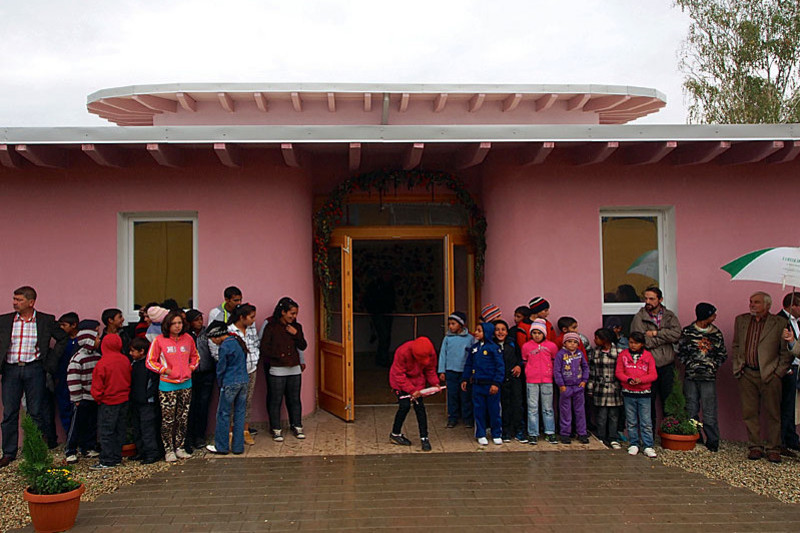“Giving Children a Strong Start in Life” – Construction of a Waldorf Kindergarten for Roma Children in Romania

About two million of the over 20 million inhabitants of Romania are Roma; more members of this minority group live there than in any other country. The Roma there fight against discrimination and structural disadvantages. Many live literally on the edges of society. For over one million Roma children, these conditions do not offer them a good start in life. They are disadvantaged even in their earliest years. Their parents are often poor and are themselves unable to read and write. Only a quarter of all Roma children attend kindergarten, and almost a third do not attend school at all. Most parents simply cannot afford to send their children to school.
In this difficult situation, only education can make a long-term difference. But improving education for Roma children requires new initiatives and dedicated individuals who work locally to provide concrete solutions to pressing challenges. One of these initiatives is the Waldorf School in Rosia, which is attended by children from Roma families. The school's construction in 2001 was supported by the Software AG Foundation and the German association Pro Rosia. 84 needy Roma children are now able to attend grades one to eight.
“The teachers at the Waldorf school in Rosia, and especially Annette Wiecken of the Romanian school association, are doing amazing work,” says Professor Dirk Randoll of the Software AG Foundation. The Waldorf school concept has been implemented effectively and without compromise, even though the Waldorf school, on account of its small class size, is a part of the public elementary school in Rosia, which is attended by Romanian children. According to Randoll, the success is thanks to the good relationship between the two schools as well as recognition of the excellent work being performed by the local municipality. The school's strong local network is not its only exemplary aspect. The Pro Rosia organisation has arranged for students from a Waldorf school in Schwabing (in Munich) to participate in a three week long social project in Rosia.
But it is not only school that is a key to a child's successful educational career, but above all early childhood development. That's why there has long been a desire for a Waldorf kindergarten. This need has been exacerbated by the economic and financial crisis, as parents - especially mothers - must seek regular employment more quickly after the birth of a child, and therefore need child care. Before the project, only a temporary solution was in place: the teacher's room in the school was being used as a makeshift kindergarten for 20 students. This solution was only just tolerated by the school authorities, since the room did not comply with requirements. A separate school building was therefore essential.
The newly built, low-energy building not only offers plenty of space for the kindergarten, but also space for the school to expand to include grades nine and tine. The Software AG Foundation supported the construction of the Waldorf kindergarten. “It's not only the environmentally-friendly construction of the new building that emphasizes the sustainable approach of this initiative, but also, and above all, the successful educational work taking place there”, said Dirk Randoll. “The Waldorf initiative has become an integral part of the community of Rosia and a cultural center for the Roma who live there. With the kindergarten, the initiative can truly realise its goal of providing children with a better start in the future.”
